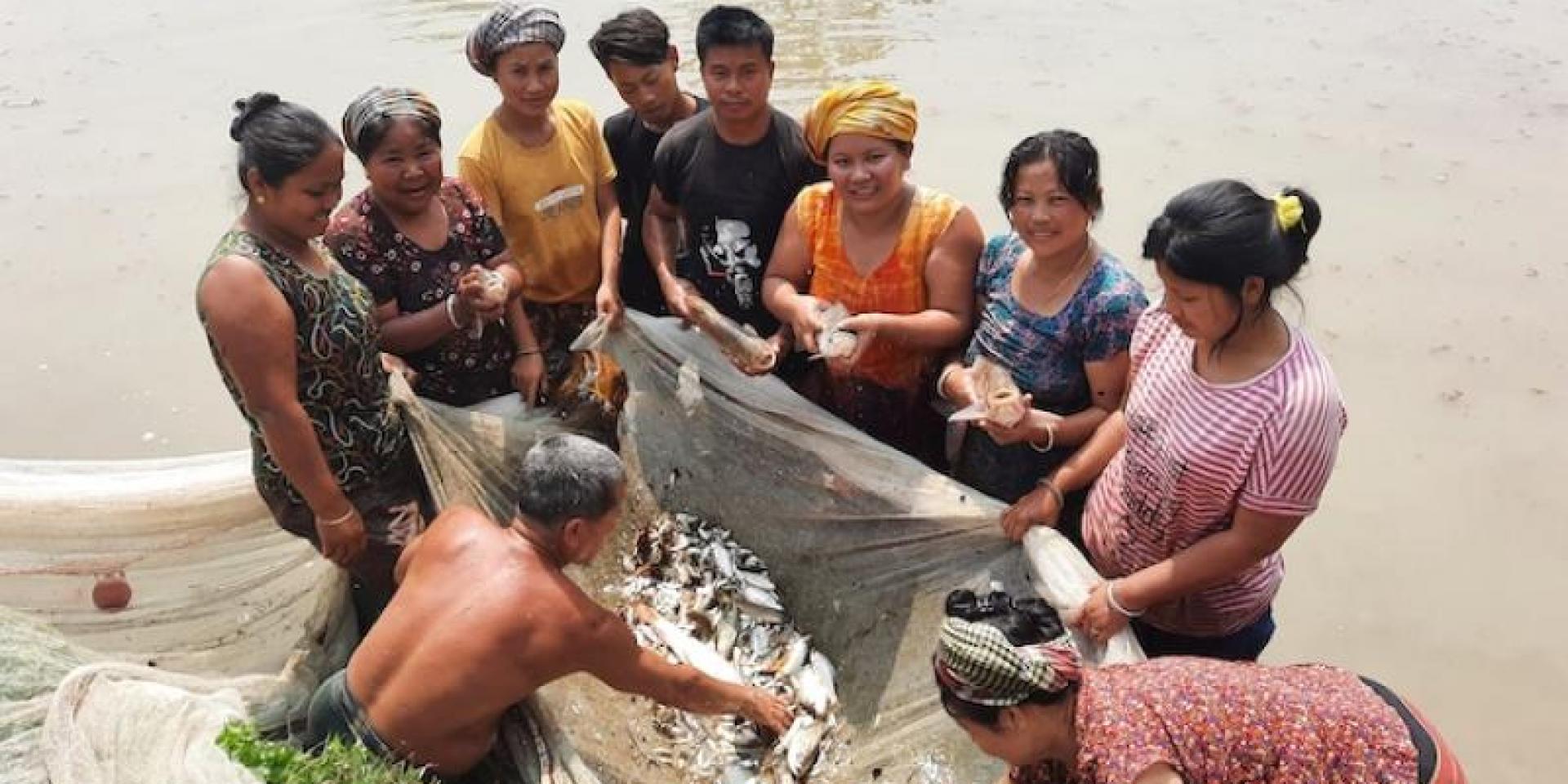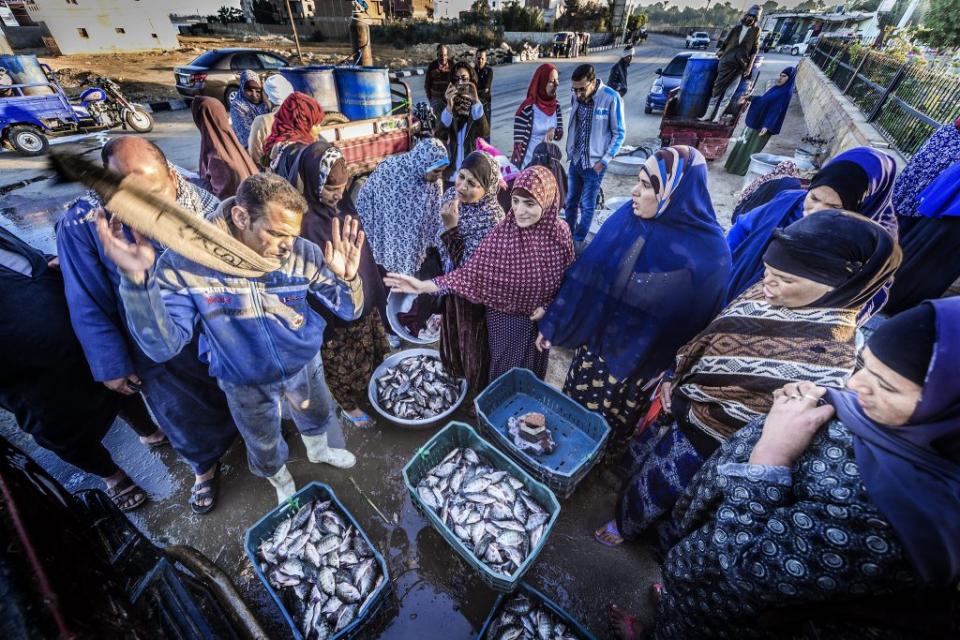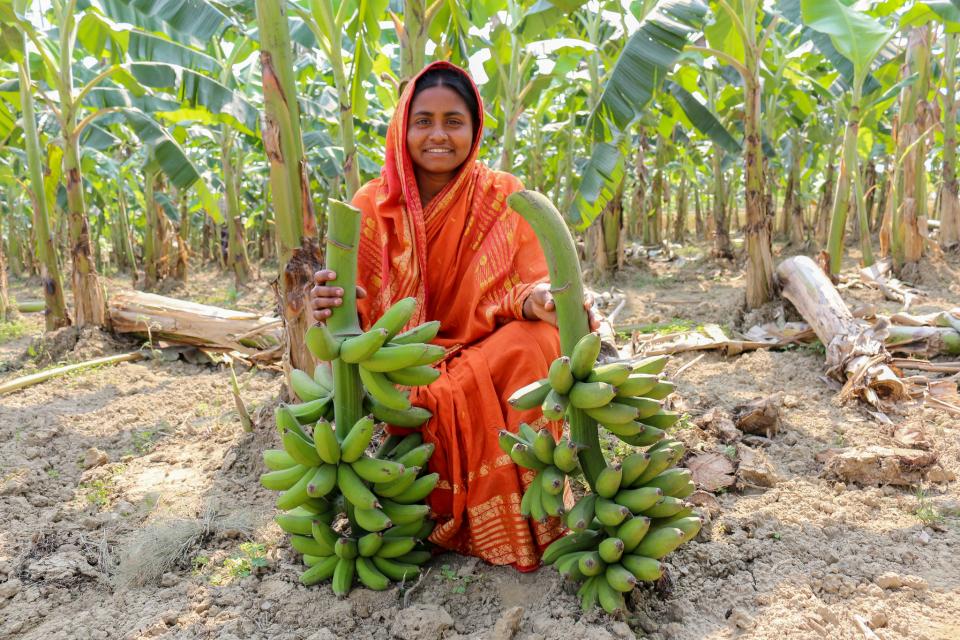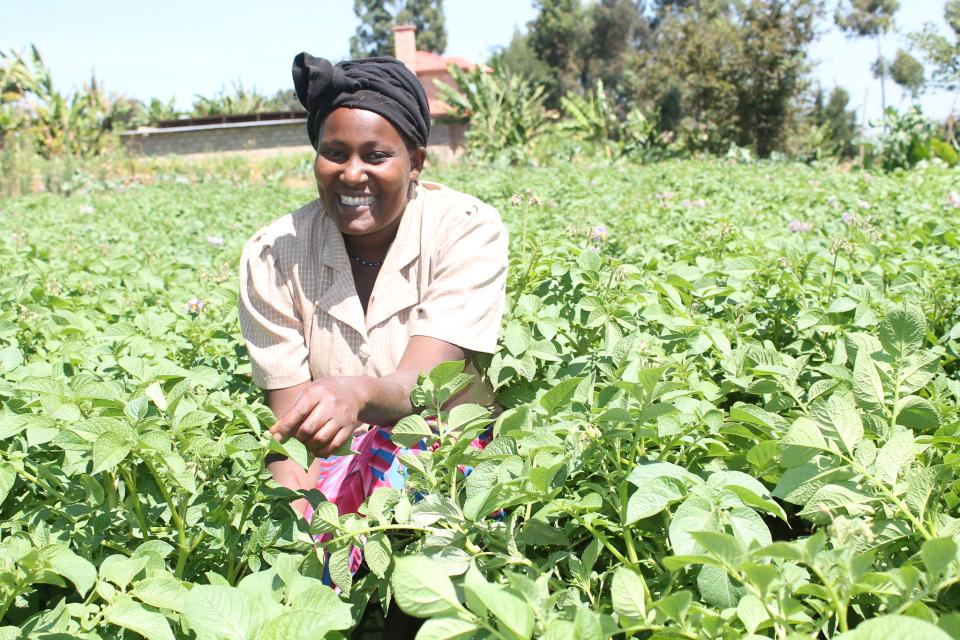Mainstreaming women’s participation in aquaculture for sustainable livelihoods
 Photo Credit: WorldFish.
Photo Credit: WorldFish.
Aquaculture has expanded significantly as an industry in Bangladesh over the last 20 years. It has the potential to greatly improve food and nutrition security while also creating sustainable livelihoods for millions of people.
Women are critical components of the aquaculture value chain, from production to processing and marketing. According to World Bank estimates, women perform around 1.4 million of the total 17.8 million jobs in the industry. Despite being present at nearly every stage of aquaculture, women are significantly underrepresented in fish harvesting.
Establishing women-led fish harvesting groups in Bandarban
Bandarban is a district in Bangladesh’s southeastern region recognized for its hilly terrain and diverse ethnic communities. As aquaculture is not a primary source of income in the area, there are just a few fish harvesting groups in operation. Small-scale fish farmers are unable to maximize their production and profitability due to the lack of access to fish harvesting facilities and expensive fishing net rental expenses.
WorldFish, through the Feed the Future Bangladesh Aquaculture and Nutrition Activity, partnered with two national NGOs to establish three women-led fish harvesting groups in Bandarban. The United States Agency for International Development (USAID) is funding this initiative, which seeks to boost local fish farming and empower women in the community.


